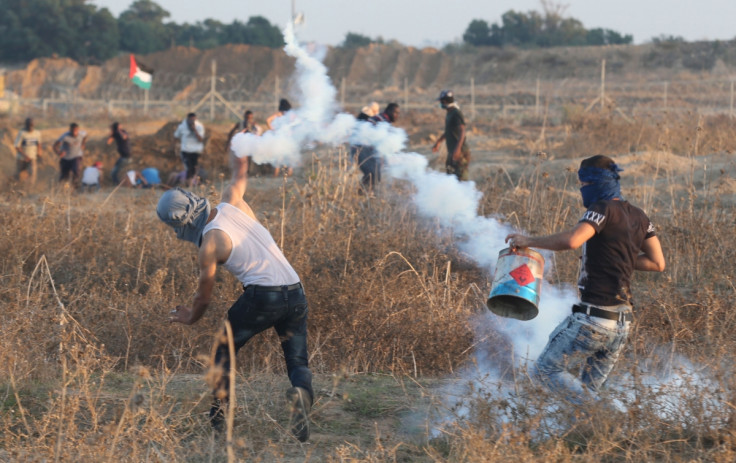Israel-Palestine unrest: UN Security Council to hold emergency session on Jerusalem violence

The United Nations Security Council (UNSC) is set to hold an emergency session on the ongoing violence in Jerusalem that has claimed 39 lives so far. The meeting is being convened at Jordan's request.
Jordan held discussions with ambassadors of the Arab nations on the eve of the emergency session, which is scheduled on Friday, 16 October. Palestinian envoy Riyad Mansour told reporters that the situation in Jerusalem is "very explosive" and urged the UNSC to "shoulder its responsibility" in easing the tensions.
In a wave of stabbings and shootings, 32 Palestinians and seven Israelis have been killed in the past two weeks. The Israeli police say they have shot dead 10 knife-wielding people.
Diplomats, who did not wish to be identified, told Reuters that no resolution is expected following the emergency session. However, the Council is likely to release a statement exhorting both sides to show restraint.
Earlier, UN spokesperson Stephane Dujarric said that the secretary general Ban Ki-moon "would find that the apparent excessive use of force by Israeli security forces is also troubling and demands serious review, as it only serves to exacerbate the situation, leading to a vicious cycle of needless bloodshed".
Surprisingly, the US, a staunch ally of Israel, has also joined the list of countries expressing concern about Israel's use of excessive force to contain the situation. State Department spokesperson John Kirby told reporters: "We've certainly seen some reports of what many would consider excessive use of force."
Nonetheless, Israeli Prime Minister Benjamin Netanyahu squarely responded to these remarks by saying: "What do you think would happen in New York if you saw people rushing into crowds trying to murder people? What do you think they would do? Do you think they would do anything differently than we are doing?"
The Israeli premier added he is ready to meet Palestinian Authority President Mahmoud Abbas to contain the situation. At the press conference in Jerusalem, Netanyahu added: "It's potentially useful because it might stop the wave of incitement and the false allegations against Israel. So I'd be open to meetings with Arab leaders, and Palestinian leadership in order to stop this incitement."
Netanyahu's remarks have come at a time when US Secretary John Kerry spoke directly to Abbas for the first time stating that he would visit the region in the coming days to mediate talks. Reports suggest a summit could take place soon in Amman, which would be coordinated by Kerry and the Jordanian king.
© Copyright IBTimes 2025. All rights reserved.





















